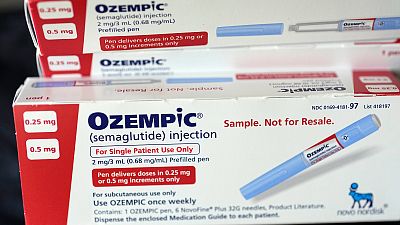Replacing red meat with plant-based protein sources like nuts and vegetables may reduce the risk of type 2 diabetes, according to a new study.
Reducing how much red meat you eat is a good way to lower your carbon footprint, and it could also be better for your health.
Researchers have found that eating just two servings of red meat per week could put people at an increased risk of developing type 2 diabetes, with that risk growing with greater consumption.
The study was published on Thursday in The American Journal of Clinical Nutrition.
“Our findings strongly support dietary guidelines that recommend limiting the consumption of red meat, and this applies to both processed and unprocessed red meat,” said first author Xiao Gu, a postdoctoral research fellow at Harvard University, in a statement.
The researchers analysed data from more than 200,000 people for up to 36 years. During this time, more than 22,000 participants developed type 2 diabetes.
Each daily serving of processed red meat was linked to a 46 per cent higher risk of developing type 2 diabetes, and each daily serving of unprocessed red meat was linked to a 24 per cent higher risk.
Type 2 diabetes affects how the body manages glucose. It prevents it from using insulin properly which leads to high blood sugar levels.
Over time, type 2 diabetes can cause serious damage to the body, especially nerves and blood vessels, according to the World Health Organisation (WHO).
In 2017, over six per cent of the population was affected by the condition, and according to experts, this rate is expected to rise.
Plant-based alternatives
The scientists from Harvard University said that switching to more plant-based protein sources like nuts and legumes was associated with a 30 per cent lower risk of type 2 diabetes. Substituting red meat with dairy foods was also found to reduce the risk of diabetes.
“Given our findings and previous work by others, a limit of about one serving per week of red meat would be reasonable for people wishing to optimise their health and well-being,” said senior author Walter Willett.
The exact role played by red meat is hard to determine without additional research but one hypothesis is that the presence of nitrates and nitrites in processed red meat could have an impact on the pancreas, the organ that produces insulin.
In addition to a balanced diet, the WHO also recommends staying physically active with at least 30 minutes of moderate exercise each day to help prevent type 2 diabetes.
Eating red meat linked to other conditions
Red meat has been linked to other conditions besides type 2 diabetes.
A meta-analysis published in 2015 showed that one serving of red meat per day was associated with a 19 per cent higher risk of cardiovascular disease mortality in the US population.
As red meat is high in saturated fat, it can raise blood cholesterol levels and cause build-up on artery walls.
Scientists have also found associations between red meat consumption and a higher risk of developing colorectal cancer and colon cancer.
The studies did not prove that eating red meat causes these conditions but rather that there is an association between the two.
Many health organisations, however, including the UK National Health Service (NHS) and the World Cancer Research Fund, recommend limiting red and processed meat consumption.



